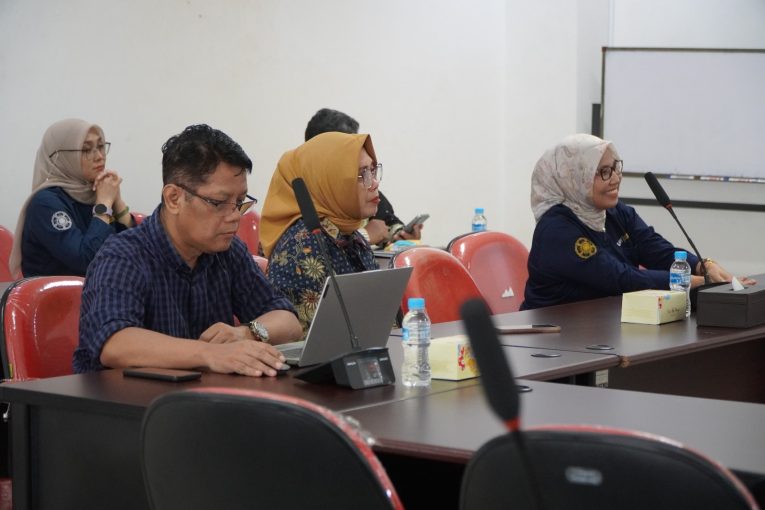
The Faculty of Philosophy at Universitas Gadjah Mada (UGM) hosted a visit from lecturers and administrative staff from Institut Teknologi Bandung (ITB) on Wednesday, December 11, 2024. The visit facilitated discussions and knowledge-sharing on the management of mandatory curriculum courses (MKWK), particularly Pancasila and Citizenship, as well as the implementation of the Religious Moderation and National Defense House program led by UGM’s Faculty of Philosophy.
The event opened with a welcome address by the Dean of the Faculty of Philosophy, Dr. Rr. Siti Murtiningsih, S.S., M.Hum., who expressed appreciation for ITB’s visit. She highlighted the importance of inter-university collaboration to develop educational programs that prioritize both academic excellence and a strong foundation of values for students.
“Each semester, we manage around 250 MKWK classes. In this process, we ensure that value transfer is at the core of learning so that students are prepared not only academically but also as responsible citizens,” she remarked.
During the discussion session, Dr. Drs. Mustofa Anshori Lidinillah, M.Hum., the MKWK Program Coordinator, presented an overview of the management and implementation of MKWK at the Faculty of Philosophy. He emphasized that the teaching approach integrates both theoretical and practical aspects.
Additionally, Syarif Hidayatullah, S.Ag., M.Ag., M.A., Head of the Religious Moderation and National Defense House, elaborated on the program’s concept and activities. The program is designed to nurture national and religious values among students.
ITB’s Director of Education, Dr.techn. Ir. Arief Hariyanto, expressed enthusiasm for UGM’s Religious Moderation House program. “I read about UGM’s Religious Moderation House program in the news. This year, several state universities, including ITB, have been tasked with developing similar initiatives. We are eager to learn more about its structure, formation process, and activities conducted by UGM,” he stated.
He also emphasized the importance of religious education providing practical insights, such as using case studies that combine religious and citizenship perspectives, to help students gain a deeper and more contextual understanding of these concepts.
The discussion was interactive, with questions and feedback exchanged between the two institutions. The ITB delegation commended UGM’s experiences and innovations, particularly in ensuring that religious and citizenship education serves as a platform for strengthening values of tolerance, nationalism, and moderation.
This visit not only reinforced inter-university relations but also opened opportunities to share best practices in education, particularly in managing mandatory curriculum courses and programs that promote religious moderation.
